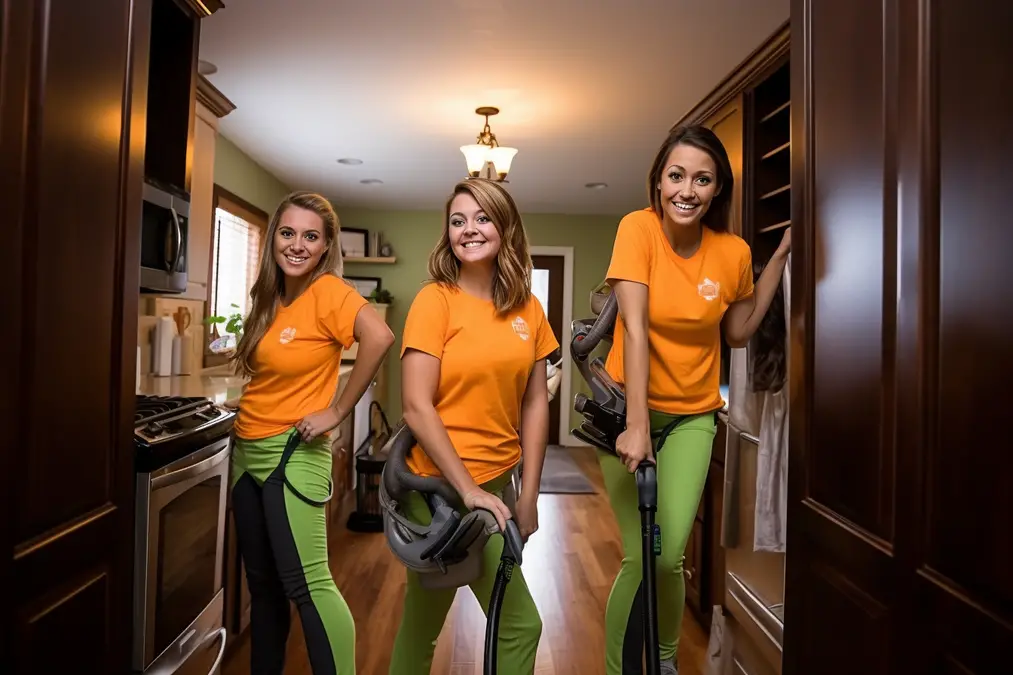Understanding the role of hotel housekeeping
Did you know that hotel housekeeping is not just about cleaning rooms? This essential role involves attention to detail, customer service, and time management. Dive into the various aspects of working in this dynamic field that keeps hotels running smoothly.

What are the primary responsibilities of hotel housekeepers?
Hotel housekeepers are responsible for maintaining the cleanliness and appearance of guest rooms, public areas, and other hotel facilities. Their duties include making beds, changing linens, vacuuming carpets, dusting surfaces, and sanitizing bathrooms. They also restock amenities such as toiletries, towels, and coffee supplies. Housekeepers must ensure that each room meets the hotel’s standards for cleanliness and presentation before guests check in.
In addition to guest rooms, housekeepers may be tasked with cleaning and maintaining lobbies, hallways, elevators, and other common areas. They often work in teams to efficiently manage their workload and may be required to report maintenance issues or guest concerns to their supervisors. The role demands attention to detail, efficiency, and the ability to work independently while adhering to established procedures.
What essential skills are needed for success in hotel housekeeping?
Success in hotel housekeeping requires a combination of physical stamina, organizational skills, and interpersonal abilities. Physical endurance is crucial, as the job involves long periods of standing, walking, bending, and lifting. Housekeepers must be able to push heavy carts and operate cleaning equipment effectively.
Attention to detail is paramount in ensuring that each room meets the hotel’s cleanliness standards. Time management skills are essential for completing assigned tasks within specified timeframes, especially during peak check-out and check-in periods. Organizational abilities help housekeepers prioritize their workload and maintain an efficient cleaning routine.
Excellent customer service skills are also vital, as housekeepers often interact with guests. They must be friendly, professional, and able to address guest requests or concerns promptly. Additionally, basic English language proficiency is typically required in the United States to communicate effectively with guests and colleagues.
What challenges do hotel housekeepers face in their daily work?
Hotel housekeeping can be physically demanding and emotionally challenging. Housekeepers often work on their feet for extended periods, performing repetitive tasks that can lead to fatigue and potential injuries. They may encounter time pressure during busy periods, requiring them to clean rooms quickly without compromising quality.
Dealing with difficult guests or messy rooms can be stressful. Housekeepers may face situations where guests are rude or leave rooms in extreme disarray, requiring extra time and effort to clean. They must maintain a professional demeanor and adhere to privacy policies while working in occupied rooms.
Exposure to cleaning chemicals and potential health hazards is another challenge. Proper training in safety protocols and the use of personal protective equipment is essential to mitigate these risks. Additionally, the COVID-19 pandemic has introduced new challenges, requiring enhanced cleaning and sanitization procedures to ensure guest and staff safety.
How does hotel housekeeping impact guest satisfaction?
Hotel housekeeping plays a crucial role in shaping guest experiences and overall satisfaction. A clean, well-maintained room is often the first impression a guest has of their accommodations and can significantly influence their perception of the entire stay. Attention to detail, such as perfectly made beds, spotless bathrooms, and well-stocked amenities, contributes to a positive guest experience.
Housekeepers also indirectly impact guest satisfaction through their interactions and responsiveness to requests. Prompt attention to guest needs, such as providing extra towels or addressing cleanliness concerns, can turn a potentially negative experience into a positive one. The overall cleanliness and presentation of public areas maintained by housekeeping staff contribute to the hotel’s ambiance and guests’ comfort throughout their stay.
What career advancement opportunities exist in hotel housekeeping?
Hotel housekeeping offers various opportunities for career growth within the hospitality industry. Entry-level housekeepers can advance to supervisory roles, such as floor supervisors or team leaders, where they oversee a group of housekeepers and ensure quality standards are met. With experience and additional training, they may progress to executive housekeeper positions, managing the entire housekeeping department.
Some housekeepers use their experience as a stepping stone to other hotel departments, such as front desk operations or guest services. Others may transition into roles in facilities management or environmental services. The skills acquired in housekeeping, such as attention to detail, time management, and customer service, are valuable in many hospitality and service-oriented careers.
What is the typical salary range for hotel housekeepers in the US?
The salary for hotel housekeepers in the United States can vary based on factors such as location, experience, and the type of establishment. According to recent data, the average hourly wage for hotel housekeepers ranges from $11 to $15 per hour. However, rates can be higher in major metropolitan areas or luxury hotels.
Here’s a comparison of estimated annual salaries for hotel housekeeping positions:
| Position | Experience Level | Estimated Annual Salary Range |
|---|---|---|
| Entry-level Housekeeper | 0-2 years | $22,000 - $28,000 |
| Experienced Housekeeper | 3-5 years | $26,000 - $32,000 |
| Senior Housekeeper | 5+ years | $30,000 - $38,000 |
| Housekeeping Supervisor | Varies | $35,000 - $45,000 |
| Executive Housekeeper | 10+ years | $45,000 - $65,000+ |
Prices, rates, or cost estimates mentioned in this article are based on the latest available information but may change over time. Independent research is advised before making financial decisions.
In conclusion, hotel housekeeping is a multifaceted role that requires a diverse skill set and offers potential for career growth. While challenging, it is an essential function in the hospitality industry that directly impacts guest satisfaction and hotel operations. For those interested in starting a career in hotels or seeking opportunities in the service sector, housekeeping can provide valuable experience and a pathway to various positions within the industry.




